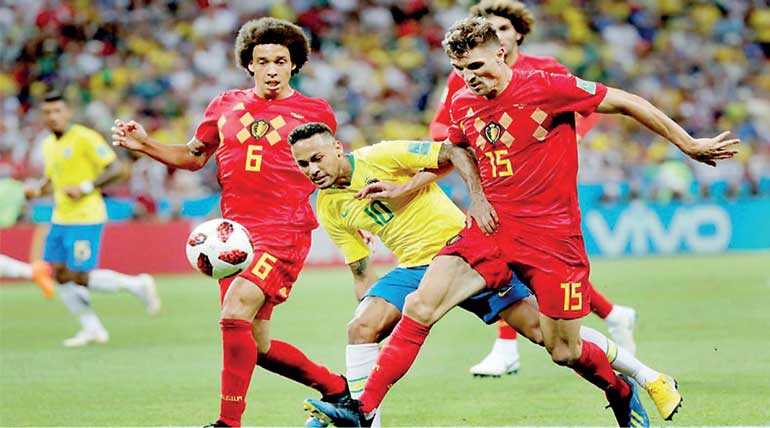Wednesday Feb 25, 2026
Wednesday Feb 25, 2026
Friday, 13 July 2018 00:00 - - {{hitsCtrl.values.hits}}
 MOSCOW (Reuters) - The wide variety of playing styles employed by the 32 teams at the World Cup, plus the so-called Guardiola effect, has helped make the tournament in Russia a memorable one, according to FIFA’s technical study group.
MOSCOW (Reuters) - The wide variety of playing styles employed by the 32 teams at the World Cup, plus the so-called Guardiola effect, has helped make the tournament in Russia a memorable one, according to FIFA’s technical study group.
Former Scotland manager Andy Roxburgh, one of a number of prominent ex-coaches who make up the group, said that individual countries still managed to keep their own distinctive playing styles even though most players are based with European clubs.
“In the Champions League last year, it was basically three schools of football among the top teams, three philosophies,” Roxburgh told reporters.
“Here you get this incredible variety of styles, of schools of thought and schools of football and that makes things incredibly exciting.
“Yes, we have globalisation and the effects of the Champions League, but all these players have been brought up in their own countries so they have a certain mentality about them and you still see a variety of styles.”
Roxburgh also praised teams for their flexibility, singling out Belgium’s approach against Brazil when they courageously threw down the gauntlet with an ultra-attacking lineup and won 2-1. “What impressed me most (was) tactical flexibility. In the past you might have rigid structures,” he said, adding that there was “flexibility from game to game and within the games.” “Just think of the way Belgium played against Brazil - the way they approached that game and the way (manager) Roberto Martinez set them up was fantastic.”
Meanwhile, the influence of Manchester City manager Pep Guardiola had made itself felt.
“Clearly Pep Guardiola has had an impact on a lot of players and people and coaches,” he said.
He defined the Guardiola style as “having a high-level possession game -- but not for the sake of it -- very much in a penetrating style.”
Whereas only one out of 45 corners produced a goal in the Champions League, the ratio at the World Cup dropped to one in 30 and the use of the video assistant referees (VARs) had played a part in this, said Roxburgh.
“This shows the incredible attention to detail which has gone into set plays... and the general speed of action, the speed of thought,” he said.
“Delivery is everything. We have seen high quality delivery, then you get the movement and finishing ability to go with this... the coaches have to be complimented.”
“VAR was not only to minimise mistakes but it has also had a deterrent effect,” he said. “After the initial part of the competition, pushing and tugging and shoving has almost been eliminated and people have the freedom to move a bit more than before.”